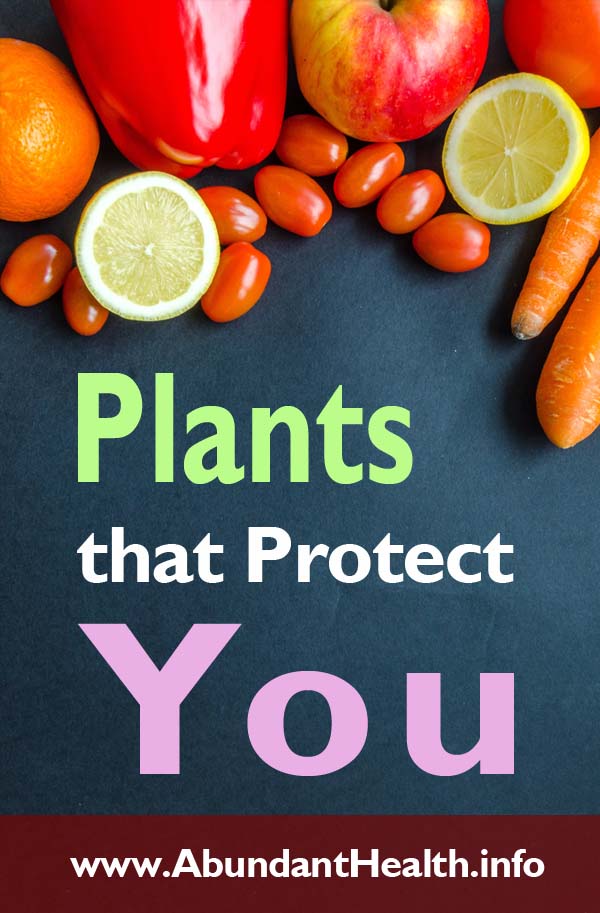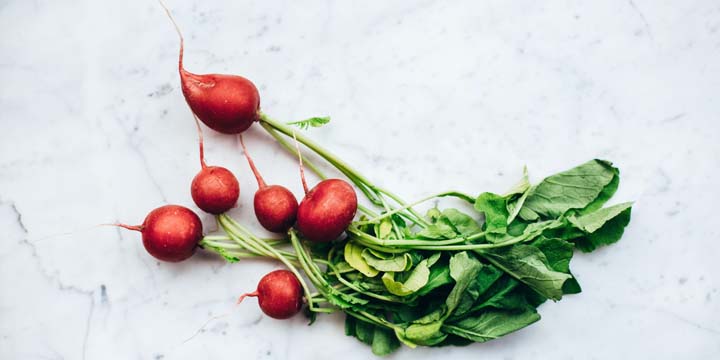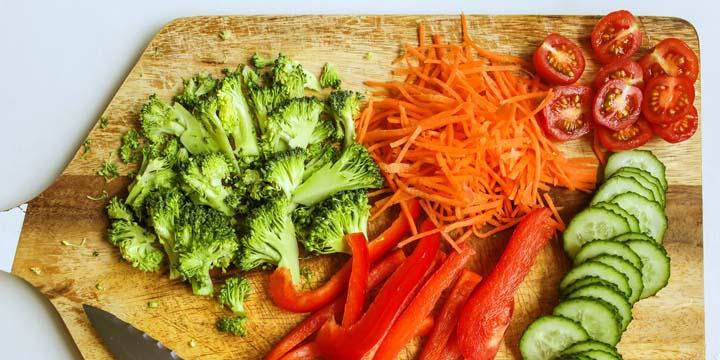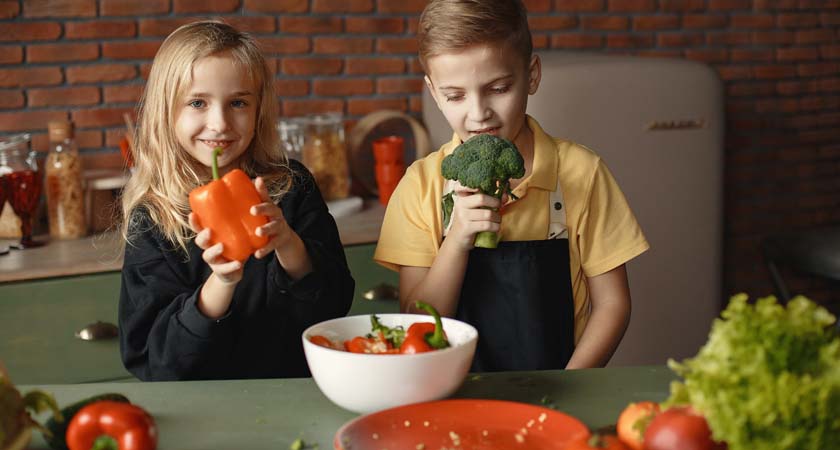Enjoy and do something for your health at the same time. Isn’t that wonderful? So begins a brochure published by the Austrian Cancer Society, in which the health benefits of fruit and vegetables are praised. Scientists are discovering the secrets of plants more and more.
Many countries adopted the campaign to recommend the consumption of at least 5 portions of fruits and vegetables daily. Statistics show it: around 40% of cancer cases are caused by poor diet. People who consume daily lots of fruits and vegetables are better protected against cardiovascular diseases and cancer. Much of the protective benefit comes from fibers and phytochemicals.

Fiber is no Luxury
For many years, fiber was considered superfluous. Therefore, they were removed from the food. The rice was peeled from the grain the germ and fiber were removed and included in the animal feed. It wasn’t until the 1960s that the English doctor Dr. Burkit got the idea that fiber could have something to do with our so-called lifestyle diseases. He realized that the native Africans he treated were less likely to have colon cancer, bowel disease, constipation and diabetes than those of his home country England. Since then we found out that Fiber is very essential to health. Fiber binds carcinogenic substances and pollutants and excretes them out quickly. The stool becomes softer and the bowel movement is faster.

Phytochemicals
What are phytochemicals? Nutritionists have known them for a long time, but they used to be considered anti-nutrients. Actually, the plants produce them for their own protection. Color and flavoring substances, protective substances against pests and diseases, sun protection factors are just as much a part of this group as vegetable toxins, acids and hormones.
These plant substances can be very helpful for us humans. They protect us from bacteria and viruses. They lower cholesterol, estrogen and blood sugar levels, get the gut going and act as antioxidants.
Health from Garlic and Onions

The typical smell of all onion plants comes from sulfur compounds. They are called sulfides. They stimulate digestion, stimulate the flow of saliva and bowel movement, protect against free radicals and influence blood clotting. They strengthen the immune system and inhibit the deposits of cholesterol in the arteries. No wonder that onions and garlic can protect us against cardiovascular diseases, even though they often bring tears to our eyes.
Protective Colorings
Flavonoids bring yellow colors, anthocyanins blue, red and purple. Fruit and vegetables shine in the brightest colors and these dyes protect us twice. First they prevent the clumping of blood platelets (thrombosis) and secondly they protect us from free radicals, which play a role in both cardiovascular diseases and cancer.
Spicy Substances in Radish and Cabbage

Glucosinolates are the spicy aromas in various types of cabbage, cress and radish. They inhibit the growth of bacteria, help ward off infectious diseases and protect us against cancer. The strong aromatic compounds are only created when the vegetables are chopped up. The mustard oils in cress and horseradish act as broad-spectrum antibiotics. They probably intervene in the metabolism of the microorganisms and thus render them harmless.
Plant Hormones
Phytosterols are found in nuts, high-fat seeds, sesame seeds, and soybeans. They are similar in structure to animal cholesterol, but have exactly the opposite effect, therefore lowering the cholesterol level. In addition to that they prevent colon cancer. Plant-based estrogens from soybeans and cereals protect against hormonal cancers. Therefore, Japanese women who are known to eat a lot of soy products suffer less from breast and uterine cancer.
Carotinoids
Yellow and red peppers, carrots, apricots, tomatoes, but also green vegetables, in which the bright colors are covered by chlorophyll, protect us from dangerous UV rays and thus from skin cancer. Carotenoids, we know about 600 different types, stimulate the immune system. Beta-carotene increases the number of natural killer cells that can attack malignant or infected cells and then kill them. Carotenoids also cause the formation of more antibodies, which then target foreign substances and prevent malignant cells from spreading as quickly.

More than 10.000 Substances
Research of phytochemicals is just in the beginning. It is believed that there are between 10,000 and 20,000 different compounds, but only for a few of them we know the exact protective effect for humans. The plants produce most of these substances during their ripening. Therefore, freshly harvested, mature fruits and vegetables contain the highest concentrations. Wild plants and organic vegetables, plants that did not grow overprotected and overfertilized, usually produce more phytochemicals because they have to protect themselves better.
Pills Versus Fruits and Vegetables
The health-promoting effects of phytochemicals sounds very promising. The pharmaceutical companies are already queuing up for the researchers. They would like to mix together a cocktail of some active ingredients and advertise it in pill form or as a dietary supplement. But does that make sense? The diversity of active ingredients make up the protective effect. The targeted selection of some isolated substances would be a weak substitute. The best guarantee of getting all the active ingredients in the right amount is still to eat the appropriate food, as nature offers to us. Best raw, fresh and crunchy. You can eat almost anything raw. Salads and fruits add variety to the menu. If it does have to be cooked, it should be done gently, briefly and with little or no fat. Season with a little salt but with a good amount of herbs. Eat it as soon as you can, because valuable compounds will be lost when keeping cooked food warm.
Now with all those valuable and essential compounds we find in fruits and vegetables we wish you good health and a long life as you make use of an abundance of protective foods that your Creator has provided for you. Enjoy!


Esther Neumann studied Nutrition at the University of Vienna. Since then she served as an author for the health magazine “Leben und Gesundheit” and conducted health lectures in various locations of Austria.
Thank you for this wonderful update on phytochemicals and fiber. Amazing properties that bring life & health to us.
There are many wonderful natural compounds and phytochemicals found in plant foods that protect us against illness and disease not to mention the abundance of essential nutrients our bodies need for health and longevity. – Dr. John Westerdahl
Thank you! This article is well informative.
You are truly ministering to us in a very helpful/healthful way! God bless you!
Vivian Raitz Carlson, health educator